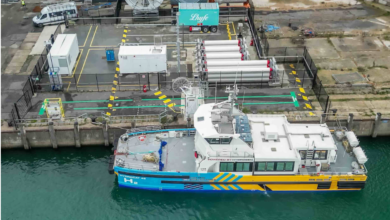US hydrogen technology company and DoE to work on HT-PEM fuel cells

A high-temperature proton exchange membrane (HT-PEM) fuel cell is a platform technology that targets passenger, commercial vehicle, drone and lightweight aviation (eVTOL), and other portable and static power.
Advent Technologies Holdings, a US fuel cell and hydrogen technology company, has signed a joint development agreement with Los Alamos National Laboratory (LANL), Brookhaven National Laboratory (BNL) and National Renewable Energy Laboratory (NREL).
The agreement will allow Advent’s scientists to work with these three US Department of Energy laboratories over the coming years to develop materials to support US manufacturing in the fuel cells sector. They will also work to bring HT-PEM fuel cells to the market. HT-PEM fuel cell technology will allow heavy-duty and other hard-to-decarbonise applications to operate with high efficiency while using hydrogen and mitigating water management problems.
Advent expects to commercialise the technology in 2021 and bring products in early 2022, while mass production can start in 2023.

The HT-PEM fuel cells can allow ships to run on renewable methanol or ammonia, aeroplanes to run on dimethyl ether (DME) or hydrogen, and off-grid power generators to work with any green fuel. This will reduce the required infrastructure investment as the technology would be able to use any hydrogen-carrying fuel.
The LANL membrane electrode assembly (MEA) architecture that Advent will commercialise is based on novel chemistry. Rather than water, it relies on engineering plastic for conducting, allowing for a wider range and high-temperatures for reliable operation (80C to 240C).
Advent and BNL will focus on commercialising ultra-low platinum electrode technology, which can cut the platinum/kW required number down 90%. This also results in reducing costs along with supply chain and environmental problems. NREL will support in developing manufacturing processes for these advanced materials.
